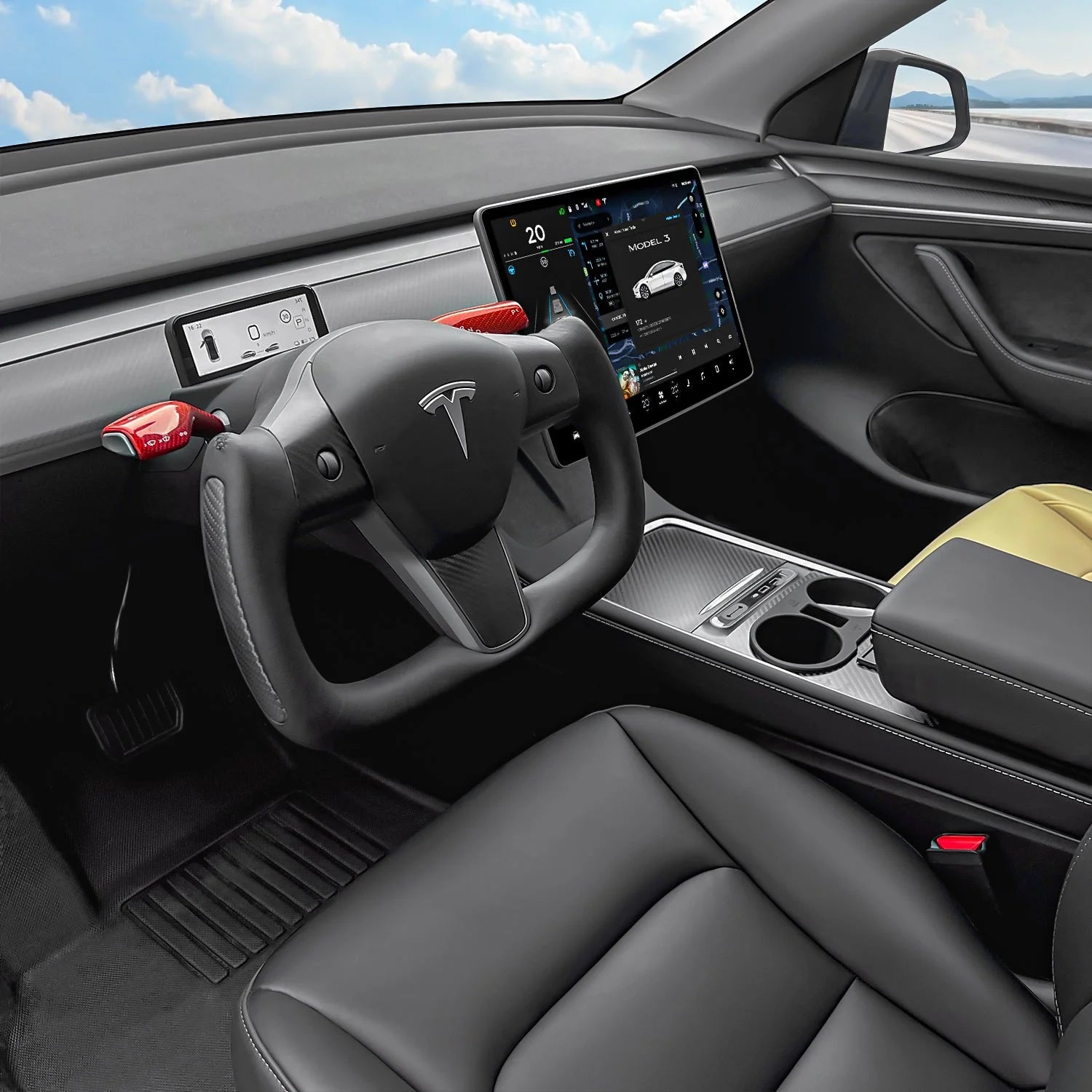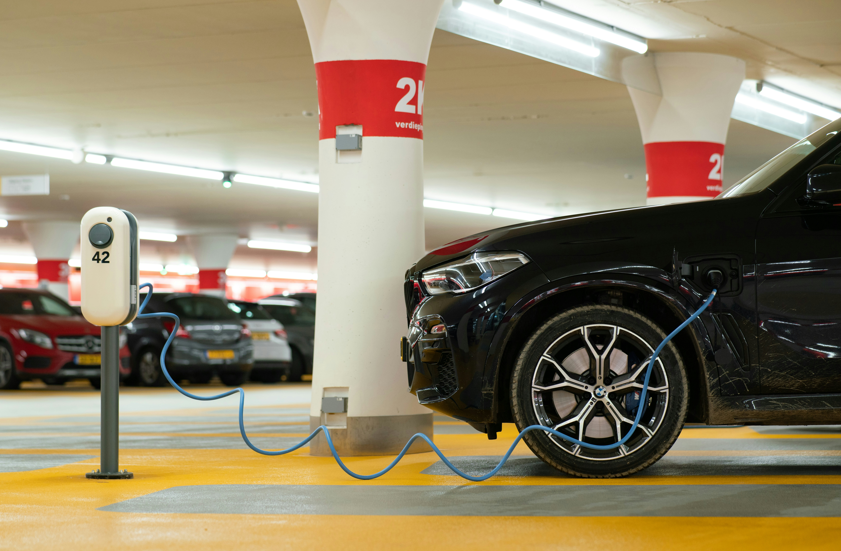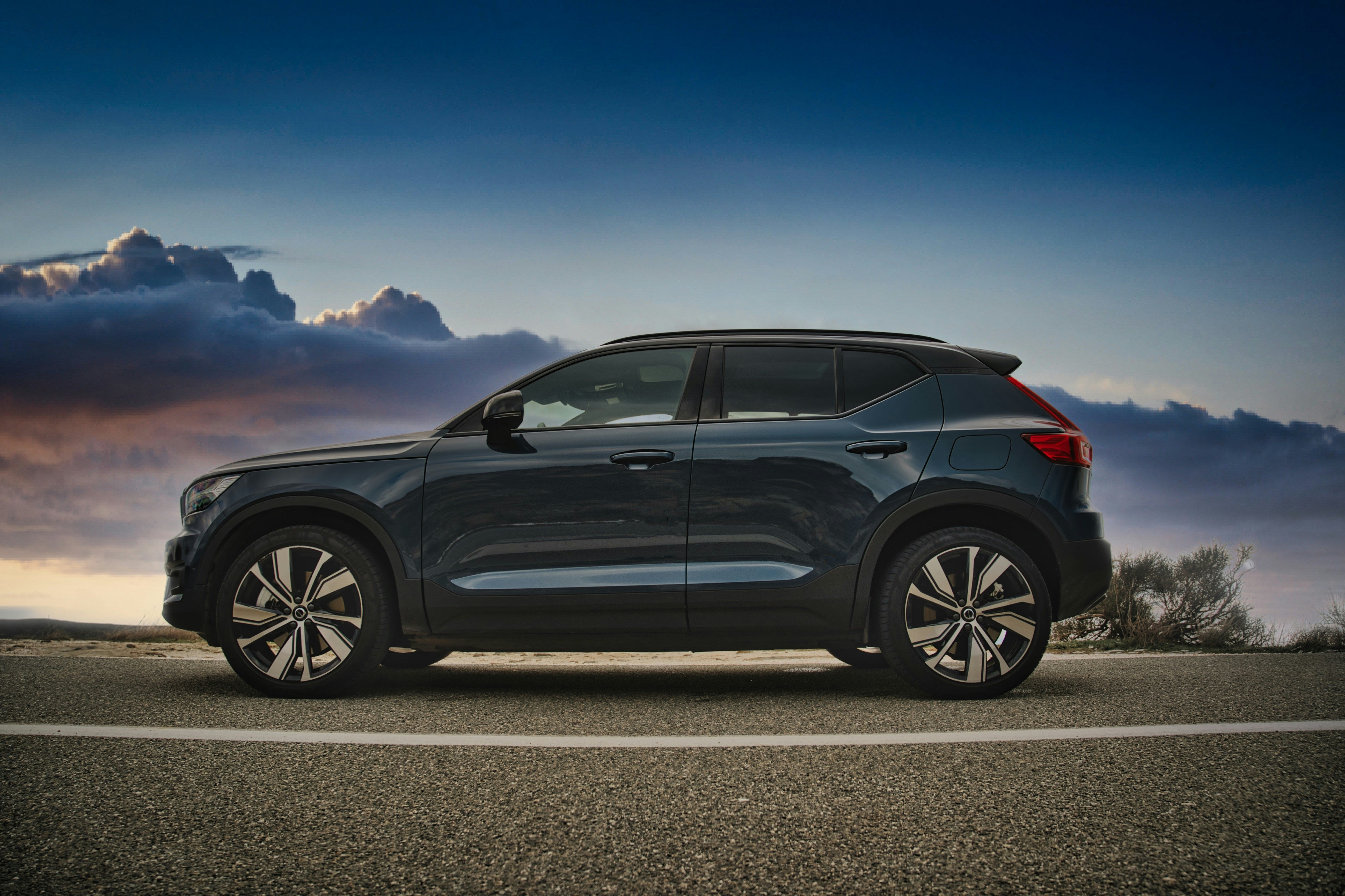¿Eres de los que ha pensado en cambiar a un vehículo eléctrico y, al mismo tiempo, te has preguntado cuánto tardan en cargarse los vehículos eléctricos? No estás solo en esta situación.
Si está considerando comprar un coche eléctrico, es fundamental que sepa todo sobre la carga de vehículos eléctricos. tiempo. Por suerte, estás en el lugar correcto.
En este artículo, analizaremos en profundidad algunos de los factores cruciales que influyen en la velocidad de carga de los vehículos eléctricos.
Entonces, comencemos con esto.
Factores que influyen en la velocidad de carga del vehículo eléctrico
No hay una respuesta sencilla sobre cuánto tardan en cargarse los vehículos eléctricos, ya que hay varios factores que intervienen en su determinación.
A continuación, analizaremos en detalle los 6 factores más importantes:
Capacidad de la batería
La capacidad de la batería se refiere a la cantidad de electricidad que un vehículo eléctrico puede almacenar en un kilovatio-hora, lo que afecta significativamente el tiempo de carga.
Es de sentido común que los vehículos eléctricos con baterías de mayor tamaño, como las que se suministran en los modelos de lujo o de larga autonomía, tarden más tiempo en cargarse por completo.
Por ejemplo, una batería de 100 kWh debería tardar más en recargarse por completo que una batería de 50 kWh en condiciones de carga similares.
¿Qué tan llena está la batería del vehículo eléctrico (SOC)?
El estado de carga (SoC) de la batería de un vehículo eléctrico, que indica el porcentaje de carga que tiene actualmente, afecta a la velocidad de carga. En comparación, en esencia, los vehículos eléctricos siempre se cargarán mucho más rápido cuando su SoC esté bajo en comparación con cuando ya estén listos para cargarse al máximo.
Este fenómeno se ha denominado tapering y reconoce que el proceso de carga se vuelve menos eficiente a medida que la batería se llena.
Tasa máxima de carga del vehículo eléctrico
Los vehículos totalmente eléctricos tienen una velocidad de carga máxima, normalmente expresada en kilovatios, que define la capacidad del vehículo para extraer energía de una estación determinada.
Un automóvil con una tasa de carga máxima muy alta puede cargar su batería mucho más rápido que un vehículo con una tasa de carga máxima baja en las mismas condiciones.
Pero, por supuesto, las velocidades de carga reales están limitadas a factores como la potencia de salida que ofrecen las estaciones de carga de vehículos eléctricos y el sistema de carga interno del vehículo.
Potencia de carga de la estación de carga
La potencia de salida de Estaciones de carga para vehículos eléctricos, ya sea un cargador rápido de nivel 1, nivel 2 o CC, afecta directamente el tiempo que lleva cargar un vehículo eléctrico.
Los cargadores de nivel 1, que suelen utilizarse en casa, proporcionan las velocidades de carga más lentas, mientras que los cargadores de nivel 2 ofrecen opciones más rápidas.
Los cargadores rápidos de CC son los más potentes y rápidos, pero no se utilizan ampliamente y pueden requerir un automóvil especialmente equipado.
Factores climáticos
La temperatura constituirá una base importante sobre el tiempo que llevará cargar un vehículo eléctrico porque las temperaturas bajas o altas reducirán la eficiencia de las baterías, disminuyendo así la velocidad de carga.
Pero la buena noticia es que algunos fabricantes de vehículos eléctricos han integrado la gestión térmica de la batería en sus nuevos modelos, evitando las pérdidas que favorecen la aparición de disparidades de temperatura.
Cargar más de un vehículo simultáneamente
Como ya sabrás, la energía disponible para cargar en los puntos de carga públicos se comparte entre varios vehículos. Esto significa que el tiempo necesario para cargar será mayor si muchos otros vehículos están utilizando su porcentaje asignado simultáneamente, lo que reducirá el porcentaje que llega a un vehículo en particular.
Este fenómeno debe tenerse en cuenta, especialmente durante las horas pico de carga o en lugares de carga con mucha actividad.
Así que estos son los factores que debes tener en cuenta cuando carga de vehículos eléctricos y estimar el tiempo. Todos estos factores juegan un papel importante en la velocidad de carga del vehículo eléctrico.. Sin embargo, lo más importante es la potencia de carga de la estación de carga.
Analicemos esto en detalle para que puedas entender la ciencia detrás de cuánto tiempo tardan en cargarse los vehículos eléctricos.
Tipos de carga de vehículos eléctricos
Cuando se trata de carga de vehículos eléctricosHay diferentes niveles de carga disponibles, cada uno con distintas velocidades y capacidades:
Nivel 1 (hasta 3,6 kW, CA)
La carga de nivel 1 es la más sencilla y consiste, por lo general, en enchufar un vehículo eléctrico a una toma de corriente doméstica estándar mediante una estación de carga portátil. Esta es la velocidad de carga más lenta y debe realizarse por la noche o durante el día, cuando no se necesita el vehículo.
Los cargadores de nivel 1 son convenientes para los propietarios de vehículos eléctricos sin acceso a una infraestructura de carga dedicada, pero pueden no ser ideales para necesidades de carga regulares o rápidas.
Nivel 2 (hasta 22 kW, CA)
La carga de nivel 2 es adecuada para un flujo de energía más rápido, en comparación con el nivel 1. Generalmente se encuentra en hogares, lugares de trabajo o puntos de carga públicos.
Estos cargadores deben instalarse con una unidad de carga dedicada y, preferiblemente, por un electricista autorizado. Pueden suministrar hasta 22 kW, lo que permite una reducción notable del tiempo de carga del vehículo.
La carga de nivel 2 es buena para reabastecerse de combustible durante la noche o para una parada más prolongada durante el día; es una combinación conveniente de velocidad y conveniencia.
Nivel 3 (hasta 350 kW, CC)
Por otra parte, el nivel 3 a veces se puede denominar carga rápida de corriente continua: la velocidad de recarga más rápida para vehículos eléctricos. Esta tecnología funciona con corriente continua, mientras que los cargadores de nivel 1 y 2 funcionan con corriente alterna. Algunos de los cargadores directos de nivel 3 pueden alcanzar una potencia máxima de 350 kW o más.
Los cargadores de nivel 3 están disponibles principalmente en estaciones de carga públicas avanzadas para vehículos eléctricos en las principales autopistas y otras rutas esenciales para viajar, recargando los vehículos eléctricos rápidamente durante rutas de viaje largas.
Si bien la carga de nivel 3 ofrece una velocidad incomparable, requiere vehículos compatibles y puede no estar tan ampliamente disponible como la infraestructura de carga de nivel 1 o nivel 2.
Ahora ya conoces los conceptos básicos del tiempo de carga de los vehículos eléctricos y los factores que lo influyen, pero seguramente te estarás preguntando dónde puedes encontrar un cargador para vehículos eléctricos de alta calidad.
¿Dónde puedo encontrar un cargador para vehículos eléctricos de alta calidad?
Todo comienza con un cargador EV confiable y de alta calidad para garantizar una carga segura y eficiente.
A continuación se muestran algunos lugares donde puede encontrar cargadores de vehículos eléctricos de primer nivel:
- Fabricantes de vehículos eléctricos: Muchos fabricantes de vehículos eléctricos ofrecen sus propias soluciones de carga diseñadas específicamente para sus vehículos. Estos cargadores suelen estar optimizados para ofrecer compatibilidad y rendimiento, lo que proporciona tranquilidad a los propietarios de vehículos eléctricos.
- Minoristas certificados: Se trata de un grupo de minoristas acreditados que cuentan con el equipo adecuado para cargadores de vehículos eléctricos. Al trabajar con este negocio, están en condiciones de tener un fácil acceso a la mayoría de los cargadores de confianza del mercado. Como tal, están en condiciones de asesorarlo sobre cuál será el mejor cargador para sus necesidades.
- Mercados en línea: Todos los mercados online establecidos están inundados de cargadores para vehículos eléctricos de docenas de vendedores. Debería haber reseñas y comparaciones de especificaciones disponibles para que pueda encontrar algo confiable para sus necesidades.
- Electricistas, contratistas e instaladores: Contratar a un electricista o contratista calificado para instalar una estación de carga de vehículos eléctricos en su hogar o lugar de trabajo garantiza una instalación profesional y el cumplimiento de los códigos eléctricos locales. Pueden recomendar cargadores de alta calidad y encargarse del proceso de instalación de principio a fin.
Ultimas palabras
En conclusión, comprender cuánto tardan en cargarse los vehículos eléctricos es fundamental para los propietarios y futuros compradores de vehículos eléctricos. Los factores mencionados anteriormente le brindan información sobre qué debe tener en cuenta al determinar la velocidad de carga de los vehículos eléctricos.
Ya sea que esté cargando en casa, en el trabajo o mientras viaja, seleccionar el cargador adecuado y optimizar sus hábitos de carga puede ayudarlo a aprovechar al máximo su vehículo eléctrico.




